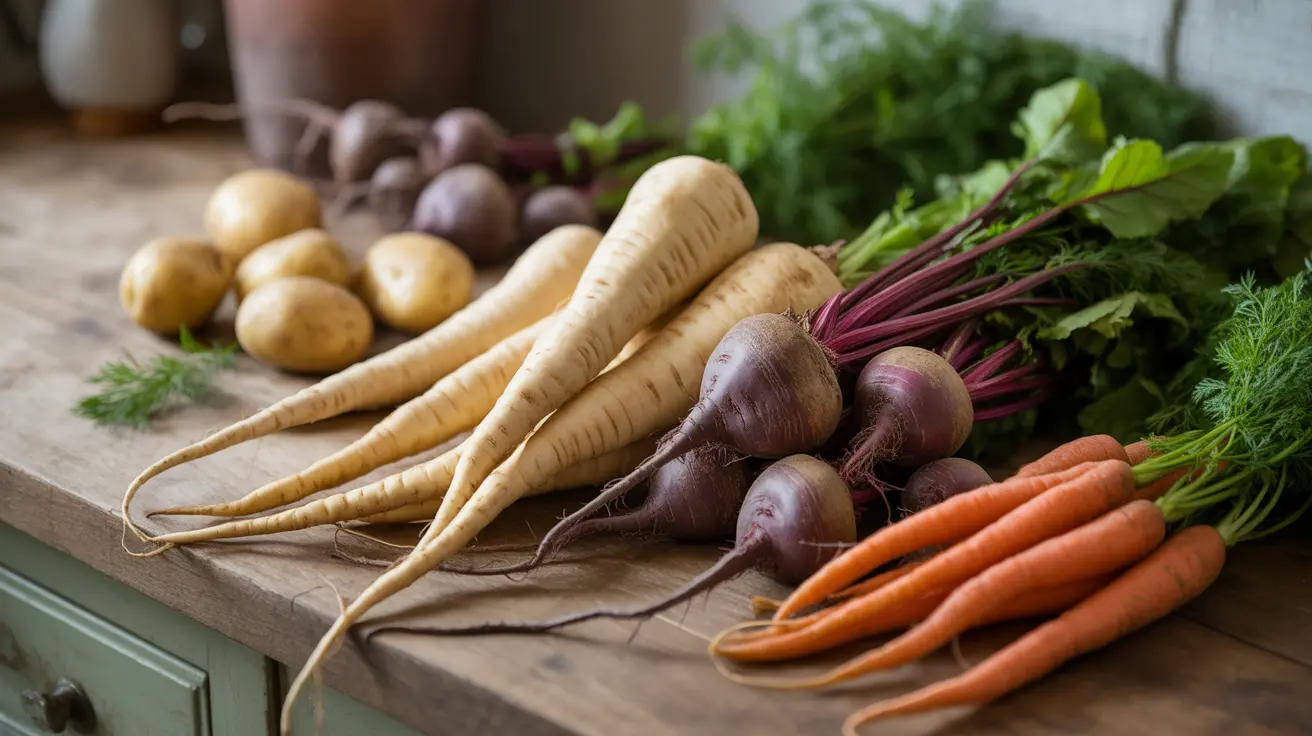Parsnips, often overlooked in the produce aisle, are powerhouse root vegetables that deserve more attention in a healthy diet. These cream-colored relatives of carrots pack a remarkable nutritional punch and offer versatile cooking options that can enhance your meals while supporting overall health.
Understanding the health benefits of parsnips can help you make informed decisions about incorporating them into your diet. From their impressive nutrient profile to their positive effects on digestion and immunity, parsnips offer numerous advantages that make them a valuable addition to a balanced eating plan.
Nutritional Profile of Parsnips
Parsnips are incredibly nutritious vegetables that provide a wide array of essential vitamins and minerals. They are particularly rich in fiber, with one cup of parsnips containing about 7 grams of dietary fiber, meeting roughly 25% of your daily needs.
Key nutrients found in parsnips include:
- Vitamin C for immune support
- Folate for cell growth
- Vitamin K for bone health
- Vitamin E for antioxidant protection
- Potassium for heart health
- Manganese for metabolism support
Digestive Health Benefits
The high fiber content in parsnips makes them excellent for digestive health. Both soluble and insoluble fiber work together to promote regular bowel movements and maintain a healthy gut microbiome. The fiber also helps you feel fuller longer, which can aid in weight management efforts.
Additionally, parsnips contain prebiotic fiber that feeds beneficial gut bacteria, supporting overall digestive system health and potentially improving nutrient absorption.
Immune System Support
Parsnips contribute significantly to immune system function through their impressive vitamin C content. One cup of parsnips provides about 25% of your daily vitamin C needs, helping to strengthen your body's natural defenses against infections and illnesses.
The combination of antioxidants and vitamins in parsnips helps reduce inflammation and protect cells from damage caused by free radicals, potentially lowering the risk of chronic diseases.
Preparing Parsnips for Maximum Health Benefits
Cooking Methods
To maximize the health benefits of parsnips, consider these preparation methods:
- Roasting with olive oil to enhance nutrient absorption
- Steaming to preserve water-soluble vitamins
- Adding to soups and stews for comfort food with benefits
- Mashing as a healthier alternative to potatoes
Storage Tips
Proper storage helps maintain the nutritional value of parsnips. Store them in a cool, dark place or in the refrigerator's crisper drawer for up to two weeks. Avoid washing them before storage to prevent moisture-induced spoilage.
Frequently Asked Questions
Are parsnips a healthy vegetable to include in my diet?
Yes, parsnips are exceptionally healthy vegetables to include in your diet. They're low in calories but high in fiber, vitamins, and minerals, making them an excellent choice for supporting overall health while maintaining a balanced diet.
What vitamins and nutrients do parsnips provide?
Parsnips are rich in essential nutrients including vitamin C, folate, vitamin K, vitamin E, potassium, and manganese. They also provide significant amounts of fiber and antioxidants that support various bodily functions.
How do parsnips support digestion and weight management?
Parsnips support digestion through their high fiber content, which aids in regular bowel movements and promotes feelings of fullness. Their prebiotic fiber also feeds beneficial gut bacteria, while their low calorie content makes them ideal for weight management.
Can eating parsnips help boost the immune system?
Yes, parsnips can help boost the immune system through their high vitamin C content and antioxidant compounds. These nutrients work together to strengthen the body's natural defense mechanisms and protect against illness.
What are easy ways to prepare and cook parsnips for health benefits?
Parsnips can be easily prepared by roasting, steaming, or adding to soups and stews. To maintain their nutritional benefits, avoid overcooking and consider roasting them with a small amount of healthy oil to enhance the absorption of fat-soluble vitamins.




